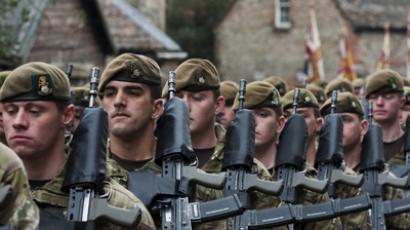Heavily armed child soldiers fighting in Mali conflict – reports
Malian child soldiers are fighting in the country’s conflict, journalists on the ground have reported. While French troops have boasted of the successful retaking of northern Mali from Islamist fighters, sectarian violence is worsening.
The three-week-long intervention has created havoc and misery, reporter Gonzalo Wancha said, adding that the scars of the conflict will likely last a lifetime. "The war became a real nightmare for the Malians," Wancha told RT. "The French intervention left a pile of debris and ashes, but that's just the visible traces of the war they left." Reporters have witnessed scores of armed children fighting in Mali. Local resident Mohamed Kandanku, shared his story of losing his brother to the armed youth:"My brother was attacked by a group of militants,” Kandanku said. “There were children among them. He started running and got back into our house. But they followed him. One of the children fired at him, but missed. And then another insurgent shot him inside the house. My brother fell and was riddled with bullets. We laid his body in the house. We couldn't bury him, because we were afraid to go outside."In Diabali, Wancha described how the majority of the military forces were heavily armed child soldiers, which does not surprise the locals or the Malian army.Reporters have also found evidence of war crimes committed by Malian troops. In the town of Sevare, the military allegedly killed civilians and dumped their bodies into a drinking water well; the bodies are still there.
Locals told Wancha that Malians who are even remotely connected to the rebels are now being persecuted. He interviewed a woman who was treated as a terrorist for having worked in a rebel household, doing mundane tasks like cooking. "After I stopped working as a cook in the town of Douentza, I went to Sevare," Adama Draba said. "There I met an old man and asked him for a drink of water. He said that he won't share water with terrorists. I said that I wasn't a terrorist and I was just thirsty. Then I was put into prison. I am no terrorist, I didn't even know that I was working with militants. I only realized that through the rumors I started hearing, and then when everyone went on to the frontline. I was just cooking food for them, no one even talked to me. And in the end, they didn't even pay us the money they promised us." Ethnic persecution is also becoming increasingly widespread in the area, Wancha said. Arabs and Tuaregs are reportedly persecuted on charges of collaborating with the militants whom the government and the French troops are fighting against. There are also reports of shops belonging to Arabs being looted.














